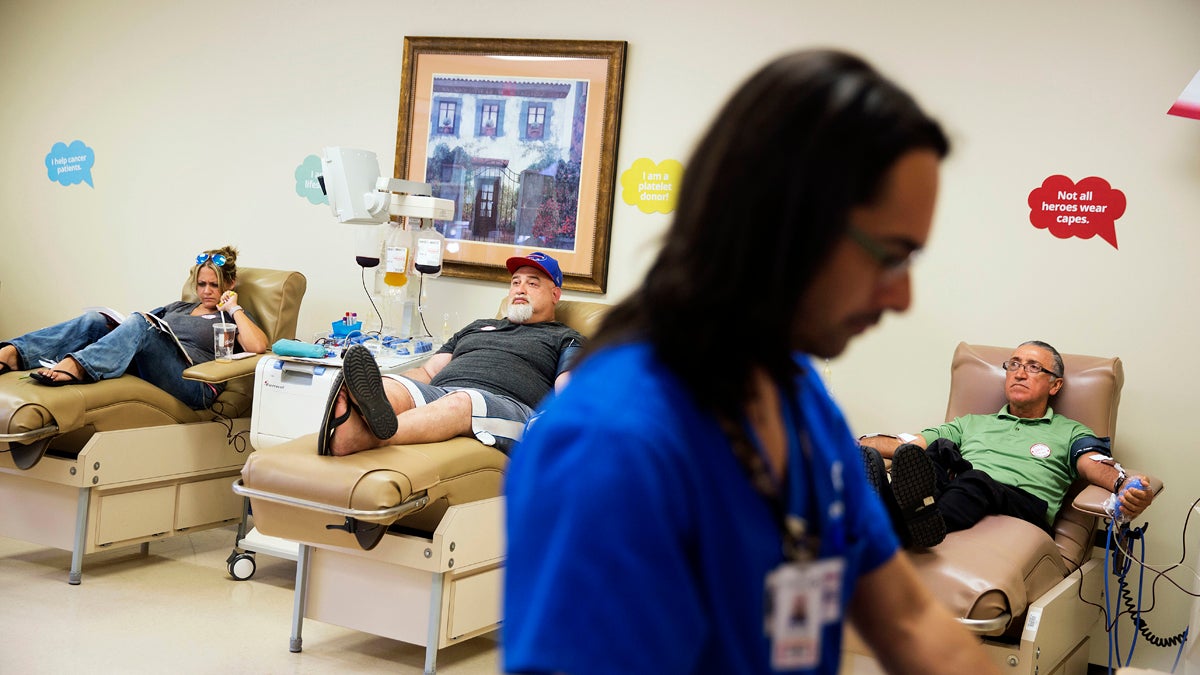Finding our place in the wake of Orlando
Listen
Abbee Kenney (from rear left to right)
The horrific mass shooting at a gay nightclub in Orlando has heightened conversations about guns, hate crimes, and terrorism.
Mass shootings have all too tragically been a frequent topic on our show. We’ve explored grief, gun technology, even the epidemiology of shootings. We’ve put together a special podcast this week that showcases these discussions — it’s called Gun Violence and you can find it on iTunes.
The horrific mass shooting at a gay nightclub in Orlando has heightened conversations about guns, hate crimes, and terrorism.
Stephanie Preston, a licensed counselor in Orlando – who has fond memories of going to the nightclub where the shooting took place – has been thinking a lot about the importance of community supports right now.
“We really need to continue to have safe spaces for people to gather together,” Preston says.
Preston primarily works with college students who identify as LGBTQ. She says in the weeks ahead, once the TV cameras go away, and the heightened national attention passes, it will be critical to make sure that there are enough resources available to help people cope with the long term trauma of what happened. More than anything, though, she plans to do a lot of listening.
“We’re very used to the hard work of just sitting with people’s pain, and being compassionate. And there’s such an art and a science to just carrying that. And then, when my own grief gets triggered, and I still need to do that job for the people I serve, my LGBT clients who are grieving…I’ve been very tired,” she says. “It’s a sad time, here.”
But despite that sadness, Preston said she’s been really moved by people reaching out and coming together in support.
Professionals like Stephanie Preston have jumped right into the fray, but the general public is trying to make a difference too. We’ve seen that through the long lines wrapping around the outside of blood banks, of people wanting to give blood in support of the victims of the shooting.
But how does blood donation work, especially in times of heightened need?
“Sunday morning, communications began. There [we began] to understand what products needed to be moved down there immediately. When you do not know the nature or the extent of the needs of the patients, and the victims, then you’re sending down what we call universal products,” Miriam Markowitz, the head of the American Association of Blood Banks, explains.
Markowitz says when someone donates blood, it takes up to three days to screen it for everything from HIV to Hepatitis to West Nile virus. Once the blood has been cleared, it can be stored for up to 42 days. That means that it’s really unlikely that people wanting to donate blood would be directly helping victims in Orlando in the immediate aftermath.
“That’s really the emotional reality, and the truth is, it doesn’t,” Markowitz says of those who want to help the victims. “It may stay in the region but the people who are in that crisis right now, their products are coming off the shelf from the local, regional and national inventory.”
Still, Markowitz says those people who are stepping up to donate blood are still saving lives, every single day.
WHYY is your source for fact-based, in-depth journalism and information. As a nonprofit organization, we rely on financial support from readers like you. Please give today.



